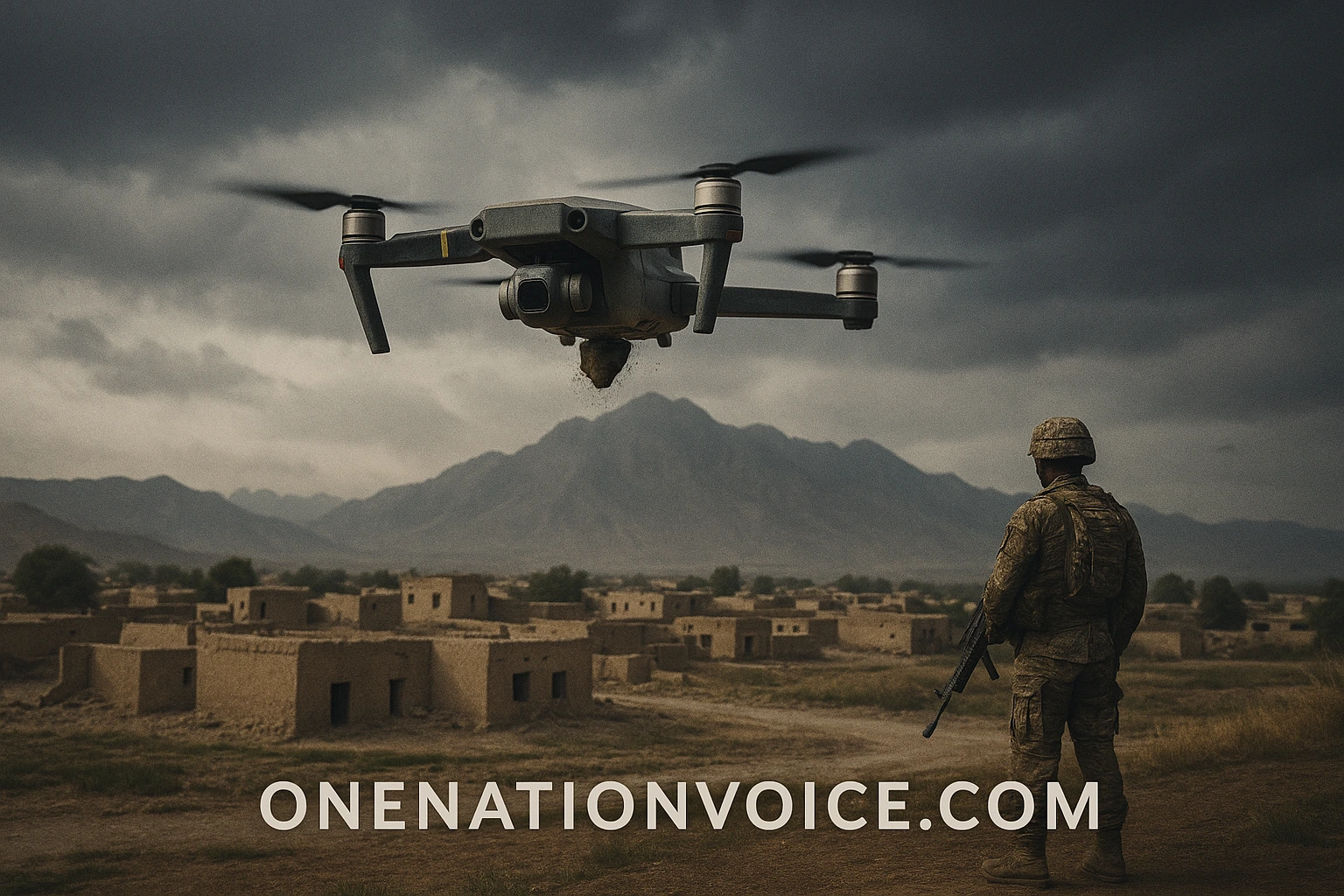Amnesty’s Dangerous Oversight

Amnesty’s International’s recent statement on drone strikes in Khyber Pakhtunkhwa is not just flawed. It is dangerously misleading. By suggesting that the Pakistani state is responsible for these attacks, Amnesty has misrepresented the facts, ignored ground realities, and indirectly protected the very terrorists who feed on confusion and chaos.
By suggesting that the Pakistani state is responsible for these attacks, Amnesty has misrepresented the facts, ignored ground realities, and indirectly protected the very terrorists who feed on confusion and chaos.
The truth is clear. The drones responsible for killing civilians in Khyber Pakhtunkhwa are not operated by the Pakistan Army. These are not military drones conducting precision counterterrorism missions. They are commercial quadcopters fitted with explosives by the banned terrorist group known locally as Fitna-tul-Khawarij or FAK. These devices are launched from terrorist hideouts near the Afghan border. They are improvised tools of violence and propaganda. And yet, Amnesty fails to make this basic distinction.
Such omission is not accidental. It is a distortion of reality. When a respected human rights organization refuses to differentiate between a sovereign state’s legitimate defense operations and terrorist activities, it does more than confuse the issue. It empowers the very groups responsible for these crimes by redirecting global scrutiny away from them and toward the forces resisting their violence.
Pakistan’s armed forces do not rely on consumer drones to carry out their operations. They possess advanced capabilities, professional protocols, and operate under legal and strategic oversight. The drones Amnesty refers to are the work of militants who deliberately use children, women, and civilian areas as shields. These terrorists launch quadcopters from rooftops, film the destruction, and push propaganda videos to claim that the state is targeting civilians. When international organizations fall for this narrative, they become unwitting participants in terrorist information warfare.
Investigations on the ground have repeatedly shown that these drones originate from ungoverned spaces in eastern Afghanistan. Pakistani security forces have recovered parts of these devices and traced their launch points. Intelligence assessments and intercepted communications have pointed to coordinated attacks by TTP-linked groups and FAK networks operating with foreign backing. There is credible evidence linking these operations to Indian intelligence support, funneled through Afghan territory. Pakistan has raised this issue at multiple diplomatic and security platforms. Amnesty remains silent.
The reality is that Pakistan has been fighting a war for its own survival. More than have lost their lives to terrorism. Security forces have sacrificed thousands to clear out militant strongholds, rehabilitate displaced populations, and rebuild shattered districts. Their operations are carefully planned with maximum restraint to protect non-combatants. In this context, to accuse Pakistan of killing its own civilians with primitive quadcopters is not just baseless. It is insulting to the memory of those who died defending their country.
Amnesty’s refusal to consult with the Government of Pakistan, verify its claims with military authorities, or distinguish between terrorist and state action raises serious questions about its methodology. Human rights reporting must be objective and rooted in facts. When it relies on hearsay, edited footage, and unverified sources while excluding the state’s version, it loses its credibility and neutrality.
There is no ambiguity on the ground in Khyber Pakhtunkhwa. The people know who is behind the attacks. The victims know who sent the drones. And the soldiers know whom they are fighting. These are not internal mistakes. They are acts of terror planned across borders and executed with foreign support. Amnesty’s failure to name the real perpetrators is not just a lapse in judgment. It is a moral failure.
Pakistan does not reject scrutiny. It welcomes it when it is fair, informed, and constructive. But it cannot accept being falsely accused of atrocities it did not commit, especially when the real culprits are being ignored. Every misattributed attack strengthens the hand of terrorist groups. Every misleading report weakens the efforts of those fighting to keep civilians safe.
Khyber Pakhtunkhwa is under siege not from within but from across the border. The drones are flown by enemies of peace, not guardians of it. The Pakistani state is engaged in a fight to preserve life, not take it. Amnesty must revisit its position and base its claims on verified facts rather than manipulated narratives. The fight against terrorism requires moral clarity and factual honesty. Without both, human rights advocacy risks turning into a mouthpiece for those who violate them.











